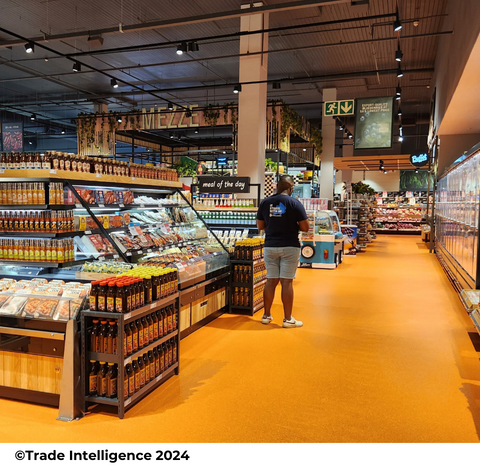‘Metail’ macro-trend
One of the big global trends we’re following at Trade Intelligence is something we call Metail – basically the rise of a more independent and empowered shopper. This plays out in so many ways – from how shoppers are using technology to inform themselves about purchase decisions, to a significantly diminished sense of loyalty to brands – either product brands or retailers. There are many possible reasons for this: one is that in a time of rising global inflation and disrupted supply chains people are becoming more practical about where and how they seek value, rather than maintaining their emotional or habitual attachments to where they shop and what they buy.
And it’s also possible that the COVID-19 pandemic, which loosened bonds between and within communities, has also disrupted the traditional relationships between shoppers and the businesses which serve them. People who became used to searching the shelves for toilet paper or flour also became used to trying other retailers and brands out of necessity.
Industry impact: The proliferation of private brands
One of the great impacts of the rise of Metail is the growing prominence of private brands. As retailers invest in their private brand ranges – in terms of both selection and quality – shoppers are beginning to realise that choosing private brands no longer means sacrificing quality for value. In response to this, private and exclusive brands are increasingly proving to be an essential part of retailers’ strategies to create differentiation. The success of Checkers’ Forage and Feast range is a case in point here.
In addition, private brands yield higher margins for retailers and enable them to have greater control of innovation lead times to meet shopper needs. South Africa’s retailers are giving heightened focus and resources to their private brand strategies, in a race to lead innovation in this sector. Private brands currently make up approximately 24% of the local retail market and many of our retailers are targeting 25% – 30%. Retailers have a vested interest in supporting their private and exclusive brands first, which presents an unequal playing field. They are also looking for agility and speed from private brand suppliers to launch new innovations to meet shopper demands.
So what does this mean for suppliers?
To maintain and grow market share, manufacturers need to build ever stronger brands, find alternate routes to market, or consider participating in the manufacture of private brands for the retailers to market as their own.
Interestingly, one of the other aspects of the Metail trend plays directly into the strengths of suppliers. Empowered shoppers are looking for inspiration – they want an immersive and captivating shopping experience, and this doesn’t just mean fun promos, big screens and the other trappings of shoppertainment. These customers are driven by curiosity, a desire for discovery, and the thrill of stumbling upon unique offerings, in the form of products and brands that put new ingredients together, or show new uses for an existing item. This is where suppliers have the advantage – the ability to innovate, test and rollout new ideas quickly and at scale, enhancing the retail experience while neutralising the threat of private brands.
The shopping experience and the journey they take through the store, matters to them.
One nation, many shopper types
One thing we have to be aware of in South Africa is how the same trends and drivers play out across different income levels. We believe that when it comes to value, there is no shopper more astute than the lower-income South African. Necessity has driven them to seek value and make their rand stretch further in ways that middle-to-upper income shoppers can’t even imagine. But at the same time, they’re also looking for the dignity and the enjoyment of a shopping experience where retailers and brands come together to offer them entertainment in the store and innovation on the shelves.
As an industry, we should be motivated by the newfound independence of the shopper, and see it as a positive – letting them guide us on their journey with our brands and through our stores, and providing them with both value and inspiration as we grow our businesses with their needs.
About Trade Intelligence
Trade Intelligence is South Africa’s leading source of consumer goods retail research, insights and capability-building solutions, focusing on the industry’s corporate and independent retailers and wholesalers. We are the trusted voice of the sectors in which we operate, aggregating information to amplify knowledge, grow capability, and enable collaboration that drives profitable trading relationships and sustainable sector growth.



